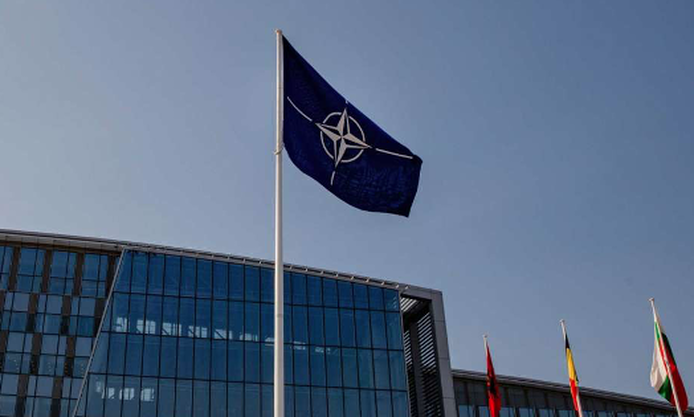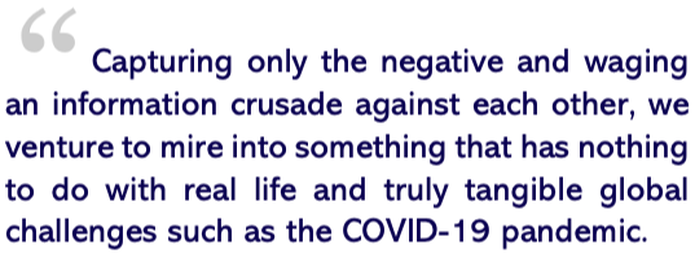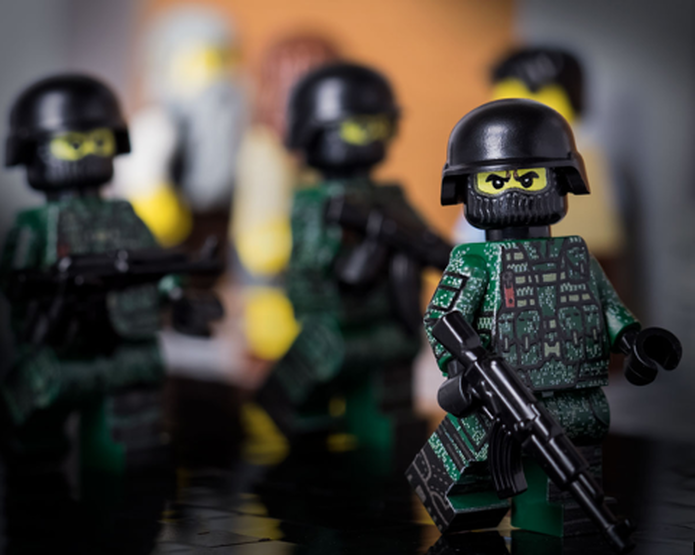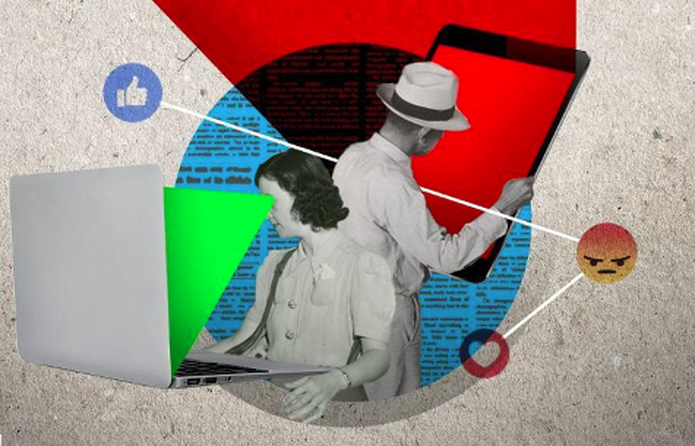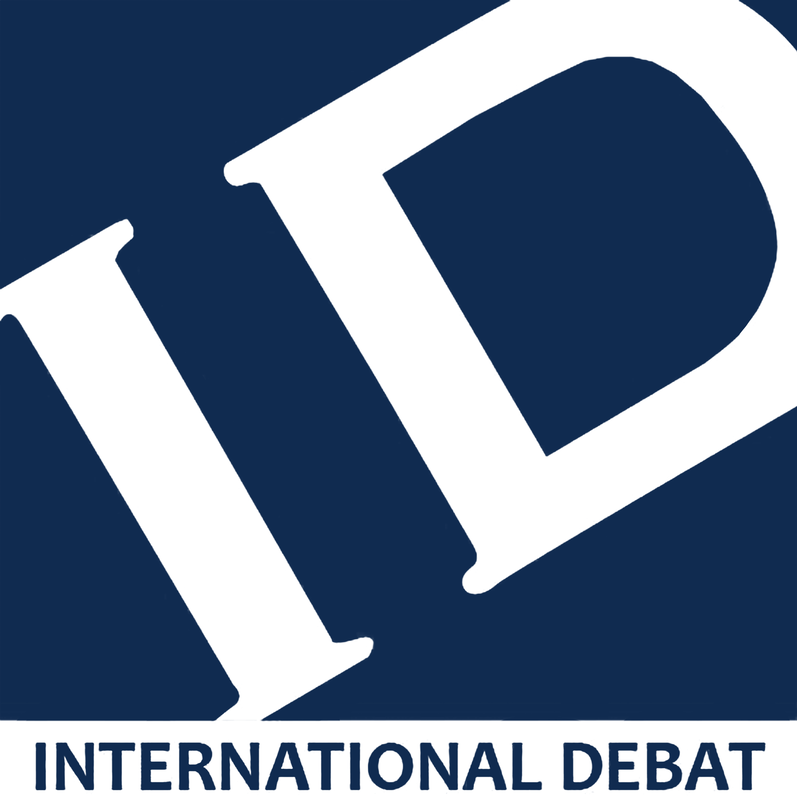|
Old enemy-pictures still wander the surface of our relations. But young people from Western countries no longer see Russia as the greatest threat to the West and young Russians do not consider NATO as the main threat to their generation. It might be time to renew and deepen relations. 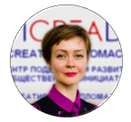 By Natalia Burlinova, President of Creative Diplomacy (PICREADI) On November 9, the first-ever NATO Youth Summit[1] brought together hundreds of young leaders from NATO Allied and partner countries, including Russia. Aimed at discussing the NATO 2030 agenda, the Summit also ensured that young leaders had an open and honest dialogue on topical issues such as the current state and operation of the Alliance. In the course of the discussions, the young participants took part in a survey: “What are the greatest threats (risks) for NATO in 2030?” The responses included 1) Russia, 2) China, and 3) internal challenges of the Alliance and the issues of its identity, as well as 4) cyber threats and attacks, disinformation and climate change. Only 3% (!!!) of the young people viewed Russia as the biggest threat to NATO 2030[2], while 56% voted for option №4. It should be noted that the survey results ran counter to the rhetoric of the NATO speakers who presented at the Summit, portraying Russia as the most tangible threat to the Alliance in their speeches. However, the survey results are very encouraging - despite certain confrontation between Russia and the West, the new generation of leaders can abandon fears and stereotypes and is ready for dialogue. Distrust and bias The last few years since the developments in Crimea, which became a turning point of alienation between Russia and the Western countries, have demonstrated that both can exist without each other for a while. They can avoid communication and interaction and pretend they can address all their problems alone. Yet the global COVID-19 pandemic has exposed that this is no longer true. It has revealed the vulnerability of the world, in which even the most developed Western countries are failing to handle such large-scale threats on their own. And the first to help might be those who are usually feared. This was the case, for example, with Russia’s humanitarian aid to Italy, the USA and some other countries, which Moscow delivered faster than the EU nations[3]. Photo by Aurelien Romain on Unsplash The pandemic has made us all equal, both rich and poor countries, Russia and the West alike. All nations face difficulties which are yet to be overcome. But while the pandemic has temporarily erased mutual accusations, it has not eliminated mutual distrust and the typical biases in how one sees the other. This is the very nature of politics: even the most arduous challenges cannot reverse attitudes towards each other that have been established over decades. If one is used to imagining Russia being continuously involved in propaganda, it is impossible to think of it otherwise. If something happens to the opposition leaders in Russia, then, no doubt, President Putin is to blame personally. It is not even discussed. Should Russia deliver its humanitarian aid, it is perceived as extremely dubious and fishy. This is how stereotypes work. Stereotypes are fueled by the mass media outlets, and those in Europe have never been benevolent to Moscow. Just compare the cartoons about Russia and President Putin published nowadays by the European media and those of the Russian Empire and the Emperor published during the Crimean War. If we conduct such an experiment, it will become clear that once set, the angle of perception cannot be altered. Except for those periods when Russia was in transformation, in the havoc of the 1980 and 1990, under the rule of Gorbachev and Yeltsin, adored by the West and despised by Russia. International reach Of course, attitude to Russia varies from country to country. Not every nation in Europe and the EU is averse to Russia. Historical background or experience of sharing the same geographical territory largely determine the relationship between Russia and certain countries. If this record included a lot of complexities in the past, these countries would tend to denigrate Russia, while nations who in the course of history had better relations with Russia, e.g. Serbia, demonstrate a more favorable media coverage. Russia’s independent information viewpoint, promoted through its media outlets Russia Today television network, and Sputnik international news agency and radio broadcast service, creates a great problem for the West. Russia Today[4] and Sputnik[5] are Russia’s opportunity to reach out to the international audience. They are means of communicating an alternative interpretation of events. “Alternative” is a keyword: it triggers the Western political community and is being ostracized. On the contrary, this alternative point of view is much sought-after by ordinary people in the West. That is the reason to accuse Russia of propaganda, while it is exactly what Western countries have been successfully doing to others - promoting their political agenda. Nevertheless, it is not deemed as something negative and, surely, does not entail, as Western policymakers claim, any propaganda. Flagrant double standards. Photo: Marlene Awaad, Bloomberg In the course of the information warfare attacks against Russia, American conservative researchers even coined the new term “sharp power”[6]. In their opinion, unlike the soft power which has been pursued by the USA, whatever Russia and China are undertaking in this domain is unequivocally called sharp power (manipulation and disinformation aimed at undermining democracy). The reason for this is simply that we are talking about Russia and China. That is why this must necessarily be challenged. The logic seems bizarre, but it is supported by many Western politicians. Otherwise, Washington and Brussels think tanks would have not released multiple reports on the countermeasures against the Russian threat[7]. A new generation against old threats The main remedy for this political malady between Russia and the Western countries would be to revitalize the mutual information coverage. Capturing only the negative and waging an information crusade against each other, we venture to mire into something that has nothing to do with real life and truly tangible global challenges such as the COVID-19 pandemic. Promotion of the adverse information agenda concerning Russia is not the key to success in developing one’s domestic policy. This is also relevant for Russia. As the survey of young NATO leaders has revealed, despite all the media coverage, they are not prone to treat Moscow as the main threat to their generation, and nor do young Russians consider the West or NATO the main threat to their generation. The discrepancies between the official rhetoric and the real figures suggest the need to reduce the verbal abuse against each other and focus on the genuinely important issues that require an urgent multilateral approach involving Russia, the West, NATO and the CSTO. This demands both commitment and political will. Present-day politicians have none of these, unlike the 2030 youth leaders. [1] https://www.nato.int/cps/en/natohq/news_178894.htm
[2] https://www.youtube.com/watch?v=Wf7Epdr2F20 [3] More information on who and to what extent received humanitarian aid from Russia during the COVID-19 pandemic is available on the 'Humanitarian Monitor' project website, Center for Advanced Management Solutions: // https://cpur.ru/russian-anti-covid-aid-2020-map/. [4] https://www.rt.com [5] https://sputniknews.com [6] https://foreignpolicy.com/2018/09/14/forget-hearts-and-minds-sharp-power/ [7] For example, https://martenscentre.eu/publications/bear-sheeps-clothing-russias-government-funded-organisations-eu
0 Comments
The last couple of years I have experienced Russian soft power firsthand through various NGO-programs. This is what I learned – and how I was influenced.  By Celine Emma la Cour, Stud.Scient.Pol at University of Copenhagen, form. Vice President of International Debat, Member of the Meeting Russia Alumni Club since 2019 There are two kinds of people: the ones who are curious about the unknown and the ones who are afraid. The first category includes those who are open towards strangers and the second includes those who would rather stick to their own. For centuries, it has been a core component of democracy that we can openly exchange worldviews and discuss how our society should be organized. This makes us able to understand each other – also if we disagree – and it makes us able to find solutions to current problems. The point of engaging in discussions is often either to learn from others or to convince the counterpart that your own argument is better. In other words, the point with having discussions is to be influenced or influence another. But the last couple of years along with the fast emergence of online and social media a lot of discussions have been disrupted by so-called 'disinformation' and therefore 'foreign influence' has become a matter of national security – especially in countries where the government is elected by the people whom might be easily influenced or manipulated. In the West, and in many other places in the world, fear of the foreign is increasing. The appearance of disinformation and so-called 'influence-campaigns' means that if we are not careful, we will be manipulated by outsiders into abandoning our true beliefs and into turning against our own. What a lot of people fail to see is that if we are too careful, we will all find ourselves in the second category of the two types of people mentioned above. If that happens, all foreign information will likely be perceived as disinformation and we might as well go offline and isolate ourselves in small homogenous societies. A core component of dialogue-based democracy is at stake – on a global level. Modern Russian Infantry. Source: brickmania.com From state to people I allow myself to represent "the West" in this article even though I know this is academically questionable because there are many countries, divergent opinions, and different approaches within the West. Some of the influence we "in the West" seem to be most afraid of is 'Russian influence'. But what we often see as malign Russian influence-attempts, Russia often sees as legitimate use of soft power. And since the West also possess and uses soft power, Russia sees our fear and our accusations as a double moral standard. Soft power involves the ability to shape the preferences of others through appeal and attraction rather than coercion (Nye 1990). It includes promoting your countries culture, political values, and foreign policy to become an attractive and reliable partner. Soft power has some advantaged to hard power because it is cheaper and more legitimate to convince people to voluntarily work with you than to force them to do so by for example military power or economic extortion or bribery. Why invade people's territory with military means if you can 'invade' people's minds by being or at least appearing favorable? Some of the influence we "in the West" seem to be most afraid of is 'Russian influence'. But what we often see as malign Russian influence-attempts, Russia often sees as legitimate use of soft power. Russian soft power strategy was launched during Vladimir Putin's second presidency in 2004-2008. Kremlin launched an active policy towards countries in the post-Soviet space to improve the image of Russia among its perceived compatriots. At first the strategy was directed towards regimes. For example, Moscow established the customs union that later became The Eurasian Economic Union and the Nord Stream gas pipeline to promote itself as an attractive economic partner and a reliable energy supplier. After the Ukraine crisis and Viktor Yanukovych's departure other regimes started to play an anti-Russian card to consolidate their power (Sergunin & Karabeshkin 2015: 349). Thus, the soft power strategy had to change. Today Russia's soft power strategy is more people-oriented and stretches further than the post-Soviet space. Within this strategy public diplomacy plays a huge role meaning any government-sponsored effort to communicate directly with foreign publics to promote a government's strategic objectives – or said in another way: a governments effort to influence foreign public opinion (Osipova 2014). Make no mistake though: Russia is not the only country engaged with public diplomacy. More and more countries are competing to win over public audiences for a variety of reasons ranging from attracting tourists, students, or foreign investment to promoting national image and influencing international affairs. Here is where it gets tricky because public diplomacy is considered legitimate but conducting influence-campaigns in foreign countries is not – but theoretically the two concepts look a bit like each other. When a foreign country wants to influence domestic public opinion up to an election it is seen as an effort to undermine democracy. It seems logical though – and even legitimate – that foreign governments want people in other countries to choose leaders that favor them. It is the methods used to do so that vary in legitimacy. From digital to physical In my time as a student of political science in Copenhagen I heard and read a lot about Russia. Russia's image in Denmark is not very favorable. Russia is often perceived as an enemy trying to undermine democracy and as a regime that does not live up to human rights obligations. Russia is also quickly impersonated as Vladimir Putin: strong but unfair. Russia is a country far away, difficult to understand, but easy to fear. Said in another way: Russia does not have a lot of soft power leverage in Denmark and I imagine it is the same in many other countries in the West. Whenever and whatever good we hear about Russia; we don't really believe it. A couple of years ago I decided to travel to Russia to test and question my perceptions about the country that have mainly emerged from what we hear and read in Western media. One of Russia's soft power methods is to promote Russian culture and foreign policy through NGO's targeting for example students and young professionals to promote educational programs and exchange (Simons 2018). I chose to cease this opportunity to get to know Russia better and thus I have participated in various NGO-programs in Russia. And boy; have I engaged in a lot of discussions, I have learned, and I have influenced. Russian NGO's are often viewed as illegitimate in the West because they receive economic support from the Russian government. Thus, they are not "non-governmental" people say. What we need to remember is that NGO's can merely survive in Russia without government support because if they receive money from abroad, they risk being labeled 'foreign agents' (Svetova 2018). Surely if they receive government support, they might have some obligations towards their government, but it does not mean that they are deliberately trying to spread disinformation to manipulate people. At least this should not be our starting point. Official opinions are often also reflected in people's opinion and by denying those opinions we distance ourselves not only from the Russian government but from the Russian people. Say I disagree; then only by understanding official opinions, I can put forward a counter argument in an understandable way to those who share that opinion. This is what 'mutual understanding' is about – which is exactly what is missing in the relationship between Russia and the West. Source: Egan Jimenez, Princeton University Blurred lines: false or biased, fact or opinion?
Dialogue fosters mutual understanding, which fosters predictability and credibility, which fosters trust and furthers possibilities to cooperate (Head 2016: 360). But in the digital age credibility is a scarce resource and fear of being manipulated keeps us from cooperating. A Russian acquaintance once said to me: Whatever you say about Russia, the opposite is also true. In other words: Truth can be inflected. A prominent discussion in philosophy of science is whether and when something can be viewed as knowledge and be defined as true. Positivists argue that when we know something is true, it is also real. "Influence campaigns in this new digital reality do not try to convince us and win an honest argument. Instead, they question reality itself," said the Danish Foreign Minister, Jeppe Kofoed at a conference on how democracies can be protected against foreign influence. But it is questionable whether one reality exists. In constructivist theory, reality is socially constructed within social contexts which means that different people in different contexts see reality differently. In other words, when people believe something is true, it is also real. Thus, it is difficult to define the line between disinformation and biased opinion. This is for example the case with the 'annexation' of Crimea as it is called in the west and the 'reunification' of Crimea as it is called in Russia. Those who agree with one or the other see true information, those who see an unfair framing see biased information and those who strongly disagree see false information. Information is interpreted within the framework of preexisting beliefs (Vuorelma 2017: 120). Therefore it is questionable whether people are easily influenced by information that they strongly disagree upon, but it is quite possible that they would refer to the information as false. Good image can be threatening Things have happened recently that from a Russian perspective could give Russia more soft power leverage in the West. Russia sent medical aid to Italy and to other countries which could be a sign of goodwill. It has also developed a potential corona-vaccine, which could improve Russia's image within biomedicine and broader academia – and could potentially put Russia in a position to help the whole planet. But in the West people are not exactly thrilled. In a Western perspective these are things that Russia can use for propaganda purposes meaning the deliberate, systematic attempt to shape perceptions and manipulate cognitions to achieve the goals of the propagandist (Jowet & O'Donell 2019: 6). In the digital age aggressive behavior is not only expansionist behavior it is also a state's intent to impose a good image and thus, a signal of good intent can be interpreted as aggressive behavior. Unfortunately, I did not learn the solution to this dilemma. On the one hand, we should not be blind towards that states or even NGO's might have an interest in lying about its intentions in order to change or control other people's opinions. But on the other hand, we should primarily put it upon ourselves to explore the reasons behind divergent perceptions. Though, I suggest this should not take place through online media where misunderstanding rule and disinformation disrupt. What we need is good old-fashioned face-to-face meetings whether between students, teachers, NGO's or government officials. Because the more we disagree the more dialogue is needed. Framing foreign influence as pure malign manipulation will keep us both from learning and from arguing our own case abroad. So, let us prevent soft power from turning too ugly. After all the use of soft power is preferable to the use of hard power. And let us hope the covid-19-crisis is over soon so that we can visit each other and engage in dialogue where influence is not always a bad thing. Literature: Head, Naomi (2016). 'Transforming Conflict: Trust, Empathy, and Dialogue', in Yohan Ariffin, Jean-Marc Coicaud & Vesselin Popovski (eds.), Emotions in International Politics. Cambridge: Cambridge University Press. Jervis, Robert (2017). 'Signaling and Perception. Projecting Images and Drawing Inferences', in: How statesmen think: The psychology of international politics. Princeton: Princeton University Press. Jowet, Garth S. & Victoria O'Donnell (2019). 'Propaganda and Persuasion' (ed. 7). California: SAGE Publications. Osipova, Yelena (2014). 'Russification‟ of „Soft Power‟: Transformation of a Concept'. The Journal of Public Diplomacy, Vol. 5, 56-77 Sergunin, Alexander & Karabeshkin, Leonid (2015. 'Understanding Russia's Soft Power Strategy', Political Studies Association, POLITICS vol. 35(3-4), 347–363 Simons, Greg (2018). 'The Role of Russian NGOs in New Public Diplomacy', Journal of Political Marketing, 17:2, 137-160 Svetova, Zoya (2018). 'NGOs in Russia: Do They Still Stand a Chance? The Kremlin is steadily ramping up its control over civil society'. Moscow Times. https://www.themoscowtimes.com/2018/02/12/ngos-do-they-still-stand-a-chance-russia-svetova-a60471 |
Arkiv
November 2020
International Debat udgiver en række artikler, der giver yderligere indsigt i emnerne, vi debaterer. |


